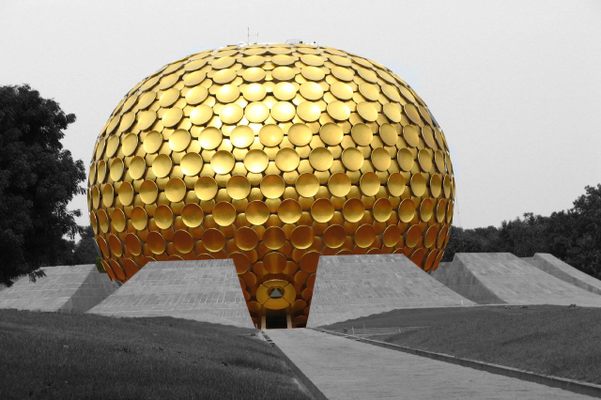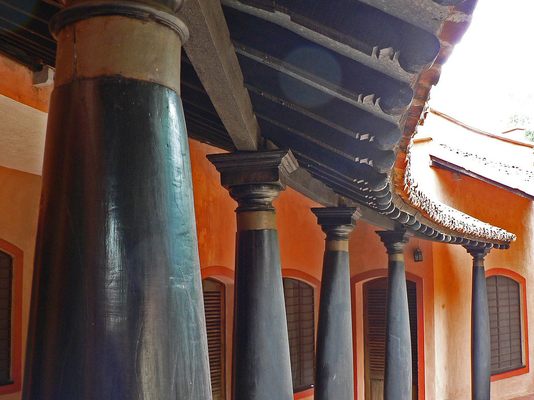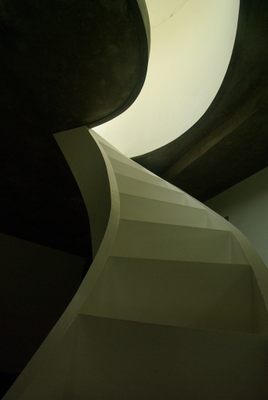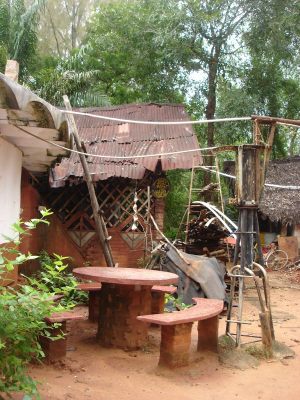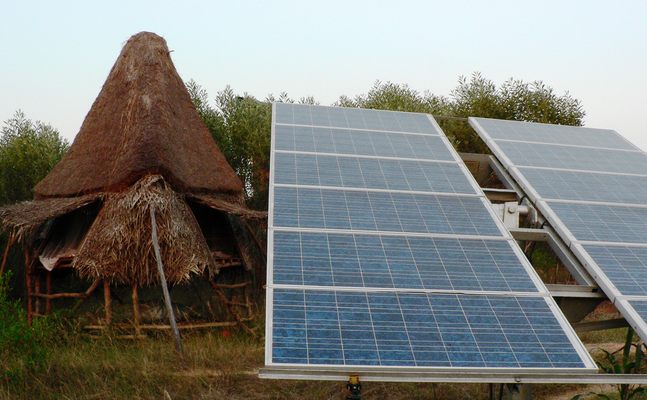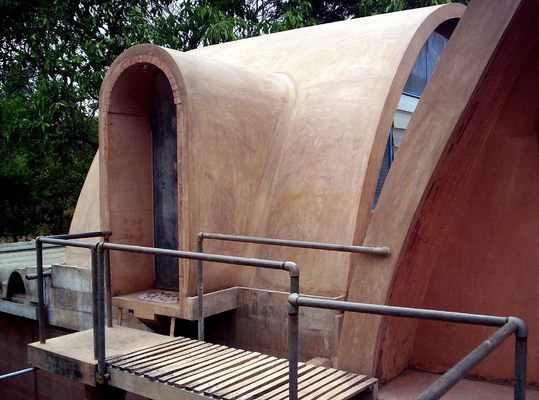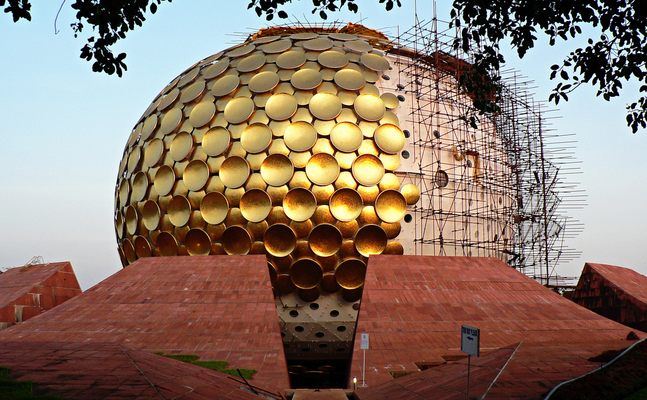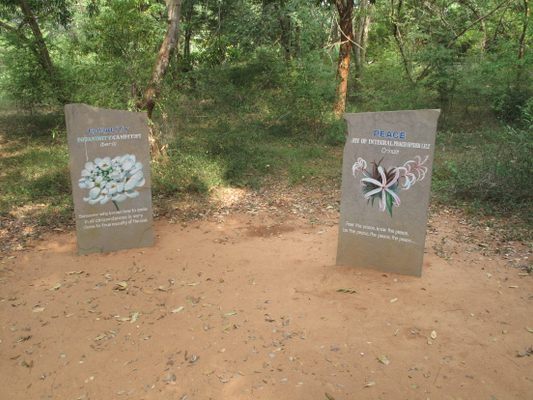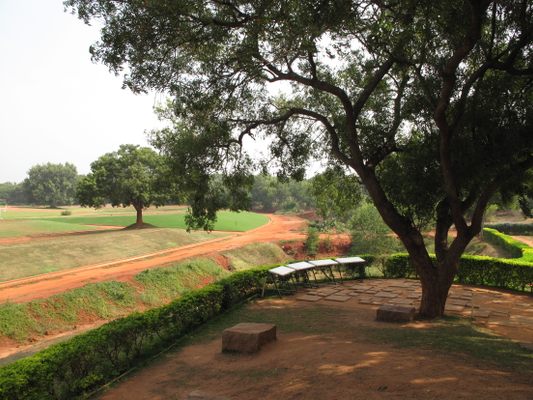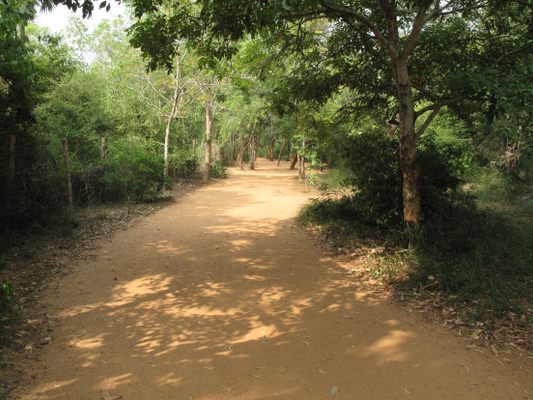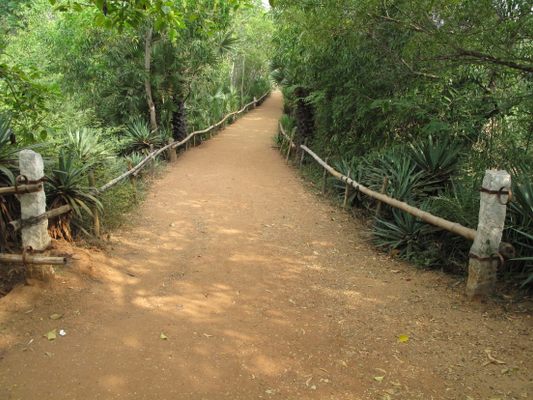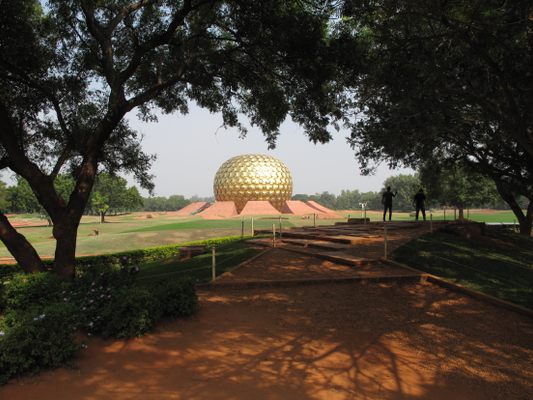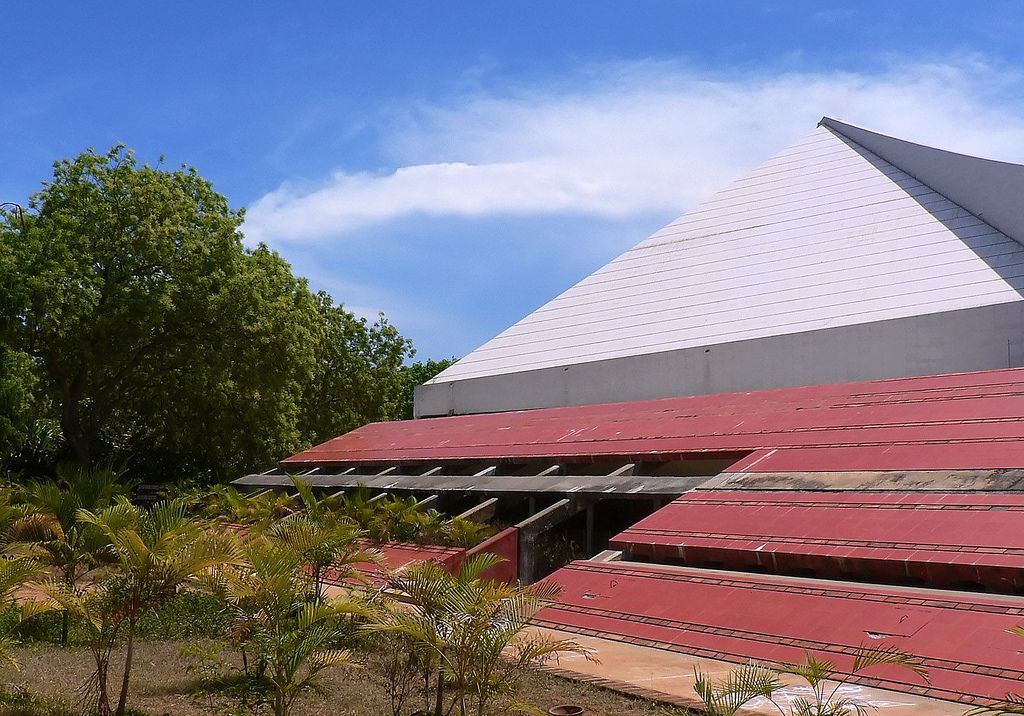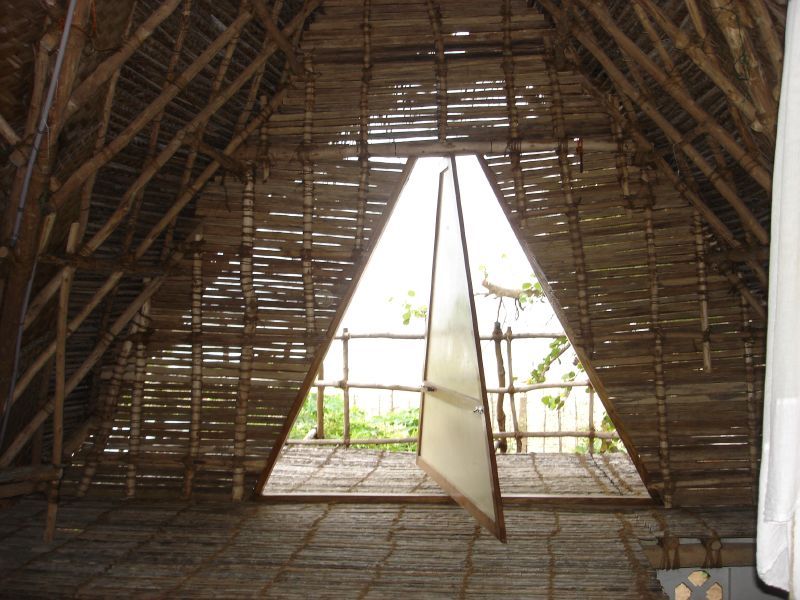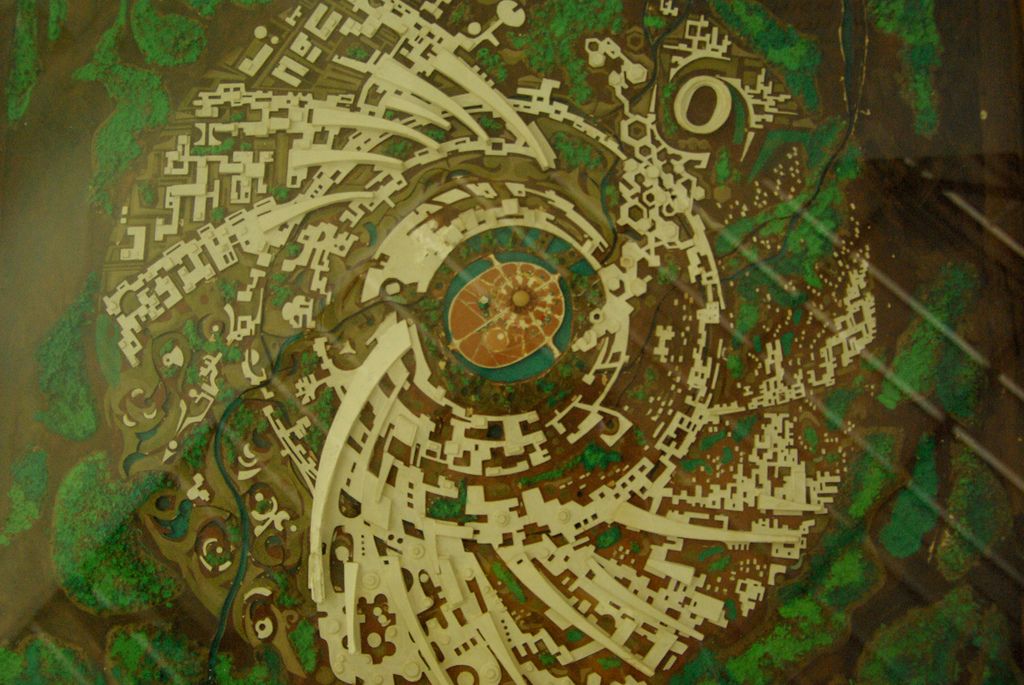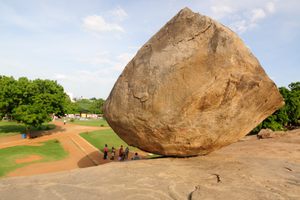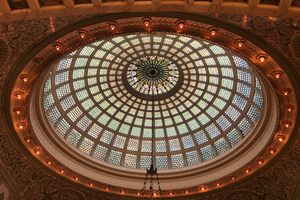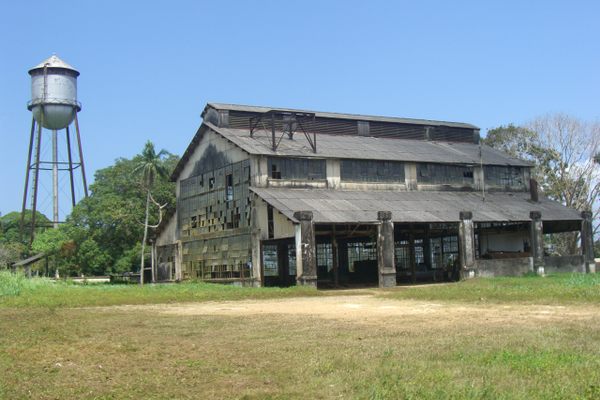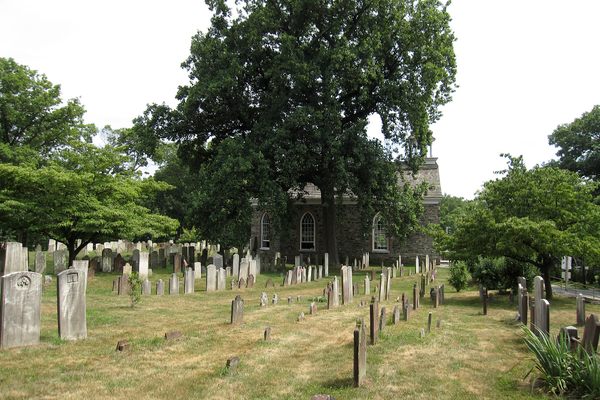About
A dozen miles north of Pondicherry, India, there is a town to which you already belong and already have citizenship, and which awaits your arrival.
To live there you will need to give up some of the comforts you may have grown accustomed to. No drinking, no smoking, and very little in the way of personal property is allowed here. You can't own your own house; business and money is communal. Even more than goods, you will have to leave behind ideas: No politics or religion are allowed in this town.
Welcome to Auroville, the self-proclaimed "city of the future" and the "city of dawn." Despite being in a rural region of India, this experimental community was started by a Westerner.
The "spiritual companion" of famous Indian independence-fighter, philosopher, and yogi Sri Aurobindo, Mirra Alfassa was a Jewish occultist and spiritualist born to an Egyptian mother and a Turkish father in France. She claimed to have inherited Sri Aurobindo's spiritual essence upon his death in 1950. Going by the title "The Mother," Alfassa was worshiped as the female incarnation of the divine, and was the first Westerner to become an Indian guru.
Alfassa established Auroville in 1968—a good year for experimental utopias—and on February 28th, 1968, roughly 5,000 people from 124 countries gathered to mix soil from their countries to mark the founding of a town that "belongs to humanity as a whole."
Wanting her community to be a "universal township" meant to exist outside of nations, creeds, politics, religion, and economics—though one could say Auroville has all these things, just of their own making – Alfassa hoped that this new city would help bring Earth to a new consciousness of the "supramental."
Intended to house 50,000, the city centers around a giant golden geodesic dome known as the "Matrimandir" or Mother Temple. Within the golden Mother Temple, silence is absolute, and a spiral ramp leads to "a 70-centimeter crystal ball in a gold mount" as well as a glowing "single ray of sunlight that is directed on the globe from the top of structure." When there is no sunlight, the beam is faked by a solar-powered light. The neighborhoods of Auroville, with names like Aspiration, Certitude, Discipline, and Grace, are laid out in a swirling spiral galaxy shape.
Perhaps the most puzzling aspect of Auroville is the line which it walks between respectability and new-age cultism. While supported by UNESCO and the Indian government, the town also "dynamises" its water by having the water "listen" to Bach and Mozart. And while the town features a Evolution Laboratory – currently the town library— Aurovilians also race through their quiet Utopia on dirt bikes, the preferred mode of transportation.
Much more disturbing is that there have also been allegations of abuse of the locals, few of whom become Aurovilians, and tolerance of sexual abuse of local children who live near Auroville by visitors and guests at Auroville.
Today, 41 years after its founding and despite its having been designed for 50,000, Auroville is home to only 2,000 or so citizens, though the community comes from a diverse 44 countries. The Mother Temple still remains unfinished, and the town has built few of its proposed structures. Aurovilians seem little worried, though. In their words, "What is more important to Auroville than dates and numbers is the quality of everything, especially the quality and consciousness of its participants."
One can stay as a guest at Auroville by paying a "guest contribution," or a daily fee. So much for no economics.
Related Tags
Delhi and Rajasthan: Colors of India
Discover Colorful Rajasthan: From Delhi to Jaipur and Beyond.
Book NowCommunity Contributors
Published
September 12, 2016
Sources
- http://en.wikipedia.org/wiki/Auroville
- http://ecocity.wordpress.com/2008/02/22/featured-project-auroville/
- http://www.auroville.org/gallery/visual_tour/index.htm
- http://www.auroville.org/thecity/faq_thecity.htm
- http://www.independent.co.uk/news/world/asia/no-drink-no-drugs-no-politics-no-religion-no-pets-so-is-this-utopia-503292.html
- http://news.bbc.co.uk/2/hi/programmes/newsnight/7413982.stm
- http://news.bbc.co.uk/2/hi/programmes/from_our_own_correspondent/7417864.stm
- http://en.wikipedia.org/wiki/Mirra_Alfassa
